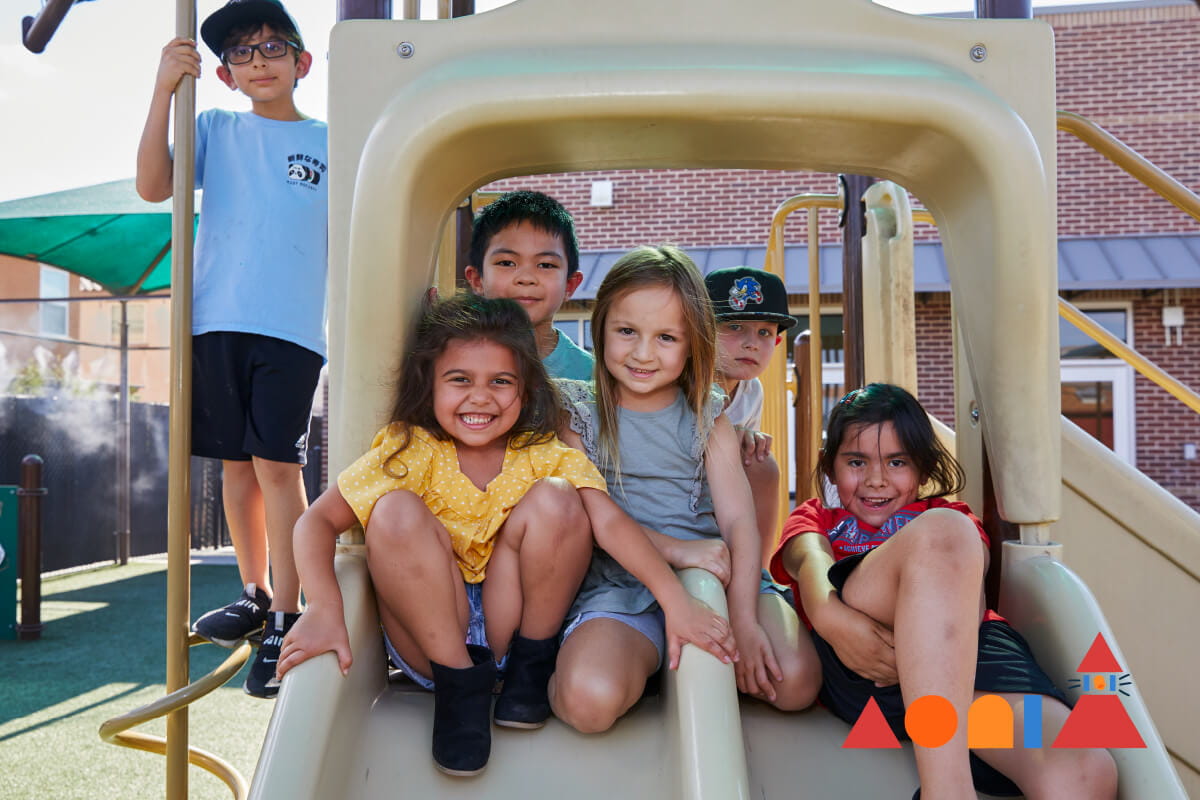Super Futures! 6 Things Top Preschools Do for Children

By Cheryl Flanders
If you clicked on this article, chances are you’re facing a tough choice—where your little love bug will spend their days when you go back to work. There’s a lot to consider. Will they be safe? Will they make friends? Will they be well-prepared for kindergarten and beyond?
What to Look for in a Preschool
Naturally, there are no cut-and-dry answers when it comes to choosing the perfect child care fit for your family. After all, every family is different—and you know what works for your child better than anyone else. But here’s something to note: There’s actually tons of evidence that preschool has real benefits for young children. What can the classroom setting in a high-quality preschool do for children? Take a look.
1. Preschool classrooms foster friendships
Pals, buds, playmates: Nothing is cuter than friendships among the preschool set, but they’re also important for a child’s independence, self-confidence, and self-esteem.
In fact, the National Association for the Education of Young Children (NAEYC) has found that children enrolled in early education programs more easily form relationships with adults and kids alike.
After all, in a classroom setting and under the guidance of a caring teacher, kids get lots of practice forming those relationships. That’s important, too, because making friends is different for kids of different ages and stages of development.
Some kids are shy, while some kids have all the ideas for how the game should go. Some kids love to share, and some are still learning how. With the help of a caring teacher, kids can learn how to be a good friend.

2. Top preschools teach social-emotional skills
Whether they’re bookish or boisterous, when your child is interacting with other children, their social-emotional skills (like sharing, cooperation, patience, empathy, and respecting others) are getting an early boost. And that matters. Not only because you want to raise a kind human, but also because there’s beginning to be real evidence that social-emotional learning, or SEL as it’s sometimes called, sets them up for success.
It may be of interest to know that even the Silicon Valley heavyweight, Google, has begun to vet prospective employees for social-emotional skills— turns out, their top managers are the ones who are strong in communication, collaboration, and empathy.
3. Top educators build self-confidence in children
Early education teachers are special people with great big hearts. They know how to spark your child’s natural curiosity, encourage him to explore new ideas, and develop a strong sense of self. Your child’s enthusiasm about school has a lot to do with their relationship to their teachers, and you’re more likely to find a great educator in a top preschool. They know how to spark your child’s natural curiosity, encourage him to explore new ideas, and develop a strong sense of self. And that kind of love lays the seeds for a lifelong love of learning!

4. Top preschools know how to make learning fun for children
The best learning happens when kids don’t even know they’re learning (in other words, when they’re having FUN!). Games, songs, dress-up boxes, art, and stories frequently used in top early education programs keep children entertained while immersing them in pre-literacy and pre-math activities.
5. In a preschool classroom, children develop a positive attitude about their peers
As your future scientist/artist/athlete plays with other children, they’ll be surrounded by people who aren’t just like them. And that’s a good thing! Teachers at a great preschool will talk openly and lovingly about everyone’s similarities and differences, in ways that children can really understand.
6. Higher test scores go hand in hand with top early education centers
Research from NAEYC found that kids who attend a high-quality early childhood education program test higher in language and math skills than their peers. And that gives them a great start in kindergarten!

So how you do know if the center you’re considering is among the best? First of all, make sure the center is independently accredited. (You’ll usually find the accreditation seal on the front windows—and when you see it, you’ll know that center has earned a mark of excellence in care and education.) If you’ll allow us one small brag here: Nationally, only about 10 percent of child care centers are independently accredited, but nearly 100 percent of KinderCare centers are—something we’re pretty proud of!
And of course, spend as much time as you need talking with the teachers and the center director. Your relationships with your child’s caregivers are deeply important. You want to make sure that the teachers are open, friendly, respectful, and knowledgeable—and that they make a real connection with you and especially your child. After all, these teachers will be their second family and you want your center to feel, well, like a real home away from home.
Are you ready to start the hunt for a great preschool? Take a look at our 8 Easy Steps for Finding the Right Child Care.




